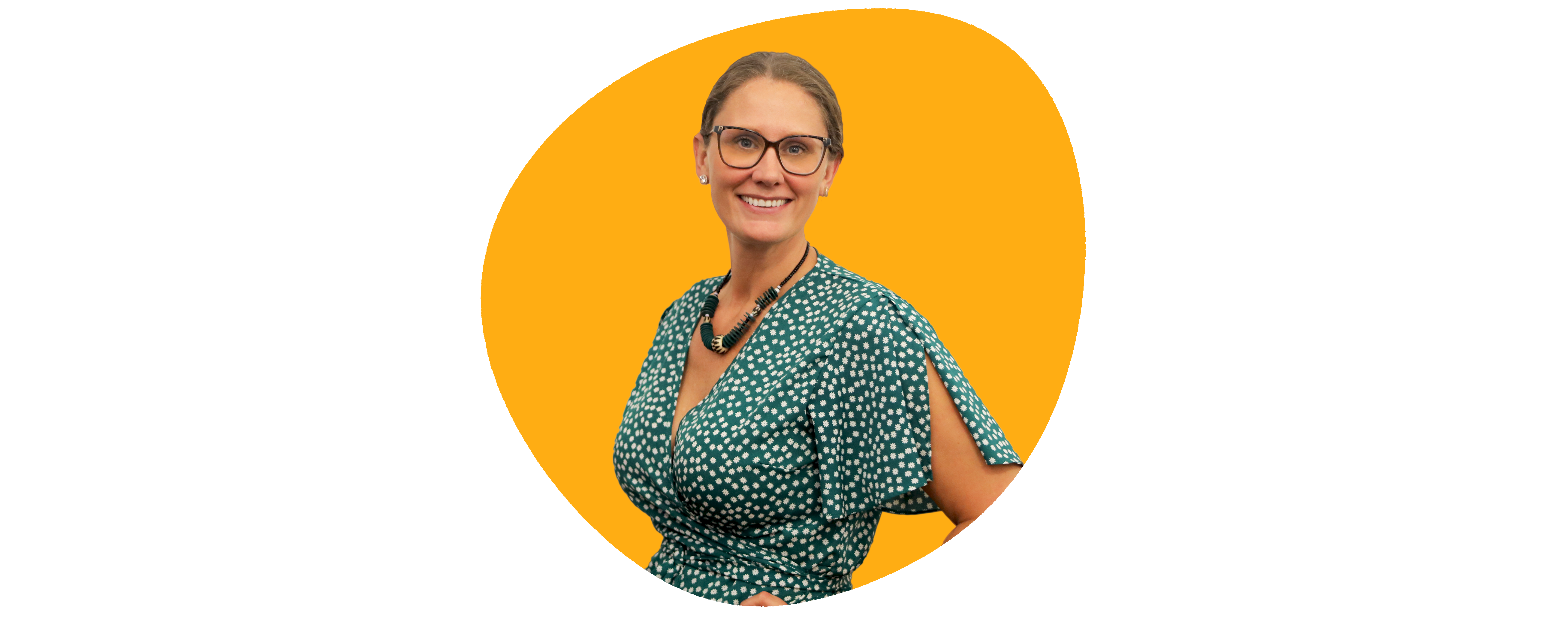Prioritizing your Mental Health with Summer Self-Care
Pause for a moment. Take a breath. You’ve made it to the end of a school year unlike any before. You’ve dealt with new developments, mastered new technologies, and likely found your students to be more resilient than you’ve ever imagined. You deserve this summer to rest, recover, and find new ways to further your craft as a valued educator.
As you start down that path, take some time for a mental health check-in. Ask yourself: how am I doing? What do I need right now? Am I feeling more anxious, stressed, or depressed after this whirlwind school year?
No matter how you are feeling, as an educator and as a person, this summer is a perfect opportunity to establish new self-care routines that can help bolster your mental health. That way, as you move into the next school year, you can practice a variety of productive habits that can keep you feeling mentally balanced, both in the classroom and at home.
Self-Care Essentials
Self-care is often touted as the first step toward a healthier mental benchmark. But for all the press about “self-care” in general, many educators still struggle to find a form of self-care that helps them navigate their personal and professional life with confidence. Some may not even know what qualifies as “self-care” in the first place, especially on a busy educator’s schedule.
In essence, “self-care” is any habit or activity that allows you to take time for yourself and feel present in your own feelings. Self-care allows you to step aside from the cares and concerns of your busy life and turn inward, where you can reflect on the joys and hardships in your life.
As a result, self-care can take on many forms, depending on what you find relaxing and rejuvenating. For some folks, that means exercising regularly. For others, that means meditating while listening to relaxing music. As long as you can point to it and say “this time is just for me,” then it qualifies as self-care.
Going Solo
That leads to another important aspect of certifiable self-care – it should ideally be done solo. That’s not to say that you can’t speak with or do activities with other people to help you rest and recharge; communal activities and therapy can be beneficial for mental health in their own way. But when it comes to effective self-care, practicing solo can help free you from distractions that might otherwise cloud your capacity to feel truly grateful or self-reflective.
The Benefits of Self-Care
Self-care comes with numerous benefits as well, especially if it is practiced routinely. Many folks report being able to manage anxiety, stress, and depression through self-care while also finding space to process their previously unrecognized positive emotions. The American Psychological Association has also noted the increased focus, stress reduction, and increased mental flexibility that can derive from mindfulness practices like self-care.
Though results may vary from person to person, self-care can play an important and reliable role in living a balanced, productive life – both personally and professionally.
Self-Care – Myth vs. Reality
When it comes to practicing self-care, there are some prevalent misconceptions that can prevent educators in particular from fully embracing this beneficial mental health exercise. Consider the following as you begin down your self-care journey:
Myth: I don’t have time for self-care! I’m too busy!
There’s no question that today’s educators are overburdened with responsibilities. But no matter how much you have on your plate, there’s always time for self-care. Even if it means waking up a little earlier to meditate or giving yourself a quick breather during your planning period, self-care can become accessible to everyone. In fact, if you feel that you are too busy from sun up to sun down, that might be a sign that you need some self-care time all the more.
Also, it’s important to remember that self-care cannot simply be added to an already full plate. You need to make space for self-care and value it like it is a priority in order to make it a muscle memory. That may mean re-prioritizing some other tasks or cutting out activities that don’t benefit your mental health. However you accomplish it, be sure to be intentional so that these new self-care activities can become active habits as soon as possible.
Myth: Self-care time is lazy. I need to be productive all day!
Many educators are well-trained towards persistent productivity. Some even think about breaks and rest as something that needs to be “earned” through continuous work.
But the truth is, we cannot be truly productive and happy if we do not make time to rest and recuperate. Self-care can provide that break in the day, even if it is only for a few minutes. In that way, rest and self-care can be catalysts for your productivity, rather than the other way around.
Myth: I’ve tried self-care time before, but I don’t think it’s for me
Self-care is for everyone because everyone needs to value their mental health. Chances are, you’ve tried one form of self-care or another and found that it didn’t meet your needs or your schedule. That’s perfectly okay because you get to decide what “self-care” means in the context of your life. So, if meditation or daily journaling aren’t for you, then maybe meal preparation or writing thank-you notes will be. Always be willing to try new things as you chart out the self-care habits and routines that are right for you.
A Summer to Recover
For many educators, summer is a time to relax and catch up on things missed in the hustle and bustle of the school year. Without question, that break is well-earned. But the summer is also an excellent opportunity for educators to take a step forward towards more positive mental health, starting with the creation of a new self-care routine.
A self-care routine, at its most basic level, is a collection of self-care habits or practices that can help maximize your ability to rest, recover, and reflect on your present emotions. For many people, a self-care routine can be an effective way to set aside time for themselves in a convenient manner, whether that’s in the morning, evening, or somewhere in between.
To that end, summer can be a great time to form a self-care routine because most educators have more unstructured time while school is not in session. This allows you to be more intentional with your habit-forming practices and less rushed when it comes to reflecting on your emotions. This, in turn, can help solidify that routine in your day-to-day schedule and ensure that your self-care foundation is solid going forward.
Here are a few self-care practices you can use to build a routine that works for you:
- Daily journaling
- Yoga or other purposeful exercise regimen
- Meditation (on your own or with an app)
- Drinking a healthy amount of water over the course of the day
- Establish a skin care regime
- Turn off or avoid electronics for X amount of time
- Avoid checking work email or other work communication for X amount of time
- Recite personal positive affirmations
- Go for a walk or hike in a park or out in nature
- Hand-write a few thank you notes
- Participate in a round of Roses, Thorns, and Buds on your own
- Buy and read a book that is NOT about teaching
- Cook your favorite meal
- Listen to your favorite music and dance
- Declutter a space in your home
- Stretch in the morning and before bed
- Pick up a new hobby
- Sleep in
- Meal prep
Don’t forget – self-care looks different for everyone. When it comes to creating your own self-care routine, start out simple and build in components that help you feel nourished mentally while also feeling more self-aware. So long as you are setting aside time just for yourself, you are on the right path toward practicing effective self-care.
A New Habit for a New School Year
Over the course of the summer, you may find that your new self-care routine can really go a long way towards supporting and balancing your mental health. But once the new school year begins to creep up in August, you may be concerned that your self-care routine will fall by the wayside between lesson planning, grading, and other teacherly duties.
Fortunately, there are plenty of ways to carve out time for self-care, even on a structured teacher’s schedule. As before, you’ll need to evaluate your schedule and set aside time each day (or as often as possible) to enjoy at least one of your preferred self-care habits. That way, you’re still enjoying the benefits of self-care without needing to worry about daily time management. But remember – time spent on self-care is always worth it because you are worth it.
Along the way, you may find yourself hitting a few bumps in the road when it comes to making time for self-care. That’s okay, as long as you are committed to getting back on the path toward making self-care part of your every day. Always treat yourself with grace and know that your efforts toward caring for your own mental health are intrinsically beneficial to your overall well-being.
Also, it’s important to know that self-care is one great way to deal with and manage burnout. Each school year is long and can take a lot out of an educator, so it’s important to practice self-care to prevent your work life from becoming too overwhelming and impacting your mental health in turn. Even a bit of self-care can go a long way on this front, so consider making it a habit once the fall semester rolls around.
Be Aware and Be Intentional
At the end of the day, self-care is all about you and making time for yourself to breath, reflect, and experience joy in your day-to-day life. For educators, self-care is critical because of the unique stresses surrounding the profession. As a result, self-care can be one way to keep an eye on your mental health as the months roll on, making it easier to identify both positive and negative emotions along the way.
Whether you’re starting this summer or looking to add new self-care habits for the next school year, always remember to be intentional and aware while you practice self-care. That way, you can always keep a close eye on one of your most valuable assets – your mental health – while striving to add even more purpose into your daily life.
Mental Health Resources and Further Readings
As you begin to think more about the role self-care can play in your personal and professional life, consider checking out some of these resources for more valuable tips and tricks for making this practice a part of your daily routine:
Why It’s So Hard for Teachers to Take Care of Themsealves (and 4 Ways to Start)
5 Strategies for Teacher Self-Care



Holly assists educators throughout the state in addressing digital responsibility, fostering positive online behaviors, and enhancing social-emotional skills among students.



Sam leads and supports the execution and growth of LTC services through the development and creation of innovative, impactful, and timely digital content.

